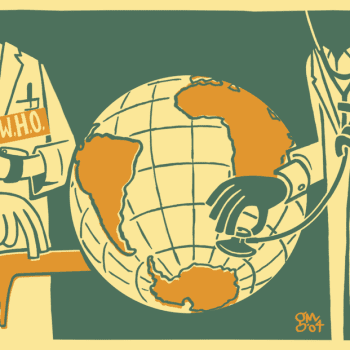Google is putting some of its gazillions of dollars into a venture capital fund. Its goal is to fund research that will let us live for 500 years.
From Google Ventures’ Bill Maris Investing in Idea of Living to 500 – Bloomberg Business:
“If you ask me today, is it possible to live to be 500? The answer is yes,” Bill Maris says one January afternoon in Mountain View, California. The president and managing partner of Google Ventures just turned 40, but he looks more like a 19-year-old college kid at midterm. He’s wearing sneakers and a gray denim shirt over a T-shirt; it looks like he hasn’t shaved in a few days.
Behind him, sun is streaming through a large wall of windows. Beyond is the leafy expanse of the main Google campus. Inside his office, there’s not much that gives any indication of the work Maris does here, Bloomberg Markets will report in its April 2015 issue. The room is sparse—clean white walls, a few chairs, a table. On this day, his desk has no papers, no notepads or Post-its, not even a computer.
Here’s where you really figure out who Bill Maris is: on his bookshelf. There’s a fat text called Molecular Biotechnology: Principles and Applications of Recombinant DNA. There’s a well-read copy of Biotechnology: Applying the Genetic Revolution. And a collection of illustrations by Fritz Kahn, a German physician who was among the first to depict the human body as a machine. Wedged among these is a book that particularly stands out to anyone interested in living to 500. The Singularity Is Near: When Humans Transcend Biology, published in 2005, is the seminal work by futurist Ray Kurzweil. He famously predicted that in 2045, humankind will have its Terminator moment: The rise of computers will outpace our ability to control them. To keep up, we will radically transform our biology via nanobots and other machines that will enhance our anatomy and our DNA, changing everything about how we live and die.
“It will liberate us from our own limitations,” says Maris, who studied neuroscience at Middlebury College and once worked in a biomedical lab at Duke University. Kurzweil is a friend. Google hired him to help Maris and other Googlers understand a world in which machines surpass human biology. This might be a terrifying, dystopian future to some. To Maris, it’s business.
This is where he hopes to find, and fund, the next generation of companies that will change the world, or possibly save it. “We actually have the tools in the life sciences to achieve anything that you have the audacity to envision,” he says. “I just hope to live long enough not to die.”
[Keep reading. . .]
What do you think of this? It seems to me to be another example of people trying to use technology to take the place of religion, putting their hope in the prospects of a life that isn’t eternal, but is at least really long. But technology can’t take the place of religion, which, for all of its miracles, is more than impressive magic tricks.














